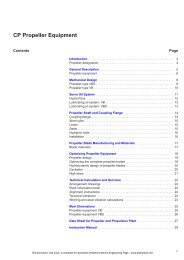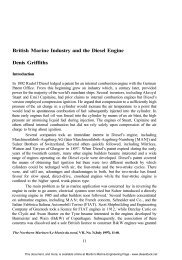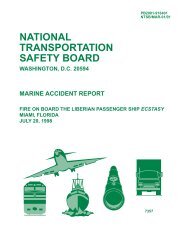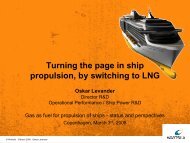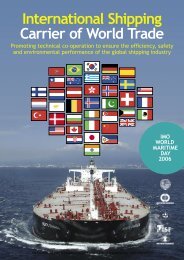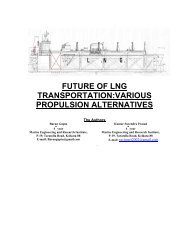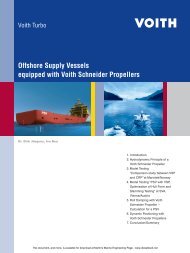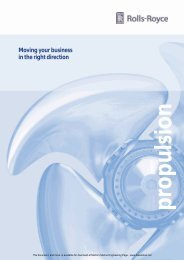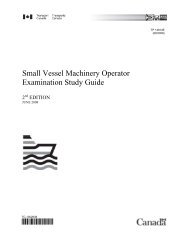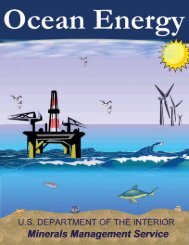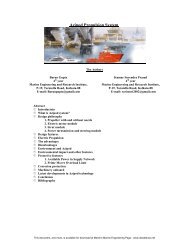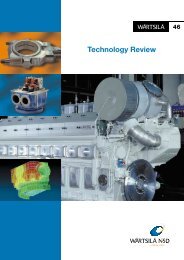Fuel Cells - Green Power - Martin's Marine Engineering Page
Fuel Cells - Green Power - Martin's Marine Engineering Page
Fuel Cells - Green Power - Martin's Marine Engineering Page
- No tags were found...
You also want an ePaper? Increase the reach of your titles
YUMPU automatically turns print PDFs into web optimized ePapers that Google loves.
In March 1998, Chicago became the firstcity in the world to put pollution-free,hydrogen fuel cell powered buses intheir public transit system.(Courtesy: Ballard <strong>Power</strong> Systems)The automobile,it is fair to say, changed the industrial andsocial fabric of the United States and mostcountries around the globe. Henry Ford epitomized “Yankee ingenuity”and the Model T helped create the open road, new horizons, abundant andinexpensive gasoline...and tailpipe exhaust. More people are driving morecars today than ever before — more than 200 million vehicles are on the roadin the U.S. alone. But the car has contributed to our air and water pollutionand forced us to rely on imported oil from the Middle East, helping to createa significant trade imbalance. Today many people think fuel cell technologywill play a pivotal role in a new technological renaissance — just as theinternal combustion engine vehicle revolutionized life at the beginning ofthe 20th century. Such innovation would have a global environmental andeconomic impact.“In today’s world,solving environmental problemsis an investment, not an expense.”The first fuel cell powered bicycleto compete in the American Tour-de-Sol.(Courtesy: H-<strong>Power</strong>)William Clay Ford, Jr.Chairman and CEO, Ford Motor Company,September 1998<strong>Fuel</strong> cells are not just laboratory curiosities. While there is much work thatneeds to be done to optimize the fuel cell system (remember, the gasolineinternal combustion engine is nearly 120 years old and still being improved),hydrogen fuel cell vehicles are on the road — now. Commuters living inChicago and Vancouver ride on fuel cell buses. You can take a ride aroundLondon in a fuel cell taxi and even compete in the American Tour de Solon a fuel cell bicycle. Every major automobile manufacturer in the worldis developing fuel cell vehicles. To understand why fuel cells have receivedsuch attention, we need to compare them to existing energy conversiontechnologies.The FutureCar Challenge, sponsored bythe U.S. Department of Energy, presentsa unique assignment to students fromNorth America’s top engineering schools:convert a conventional midsize sedaninto a super efficient vehicle withoutsacrificing performance, utility, andsafety. In 1999, the Virginia Techteam entered the competition with afuel cell vehicle.“The mission of our global fuel cell projectcenter is nothing less than to make us the leader incommercially viable fuel cell powered vehicles.”Harry J. Pearce, Vice Chairman,Board of Directors, General Motors.May 1998This document, and more, is available for download at <strong>Martin's</strong> <strong>Marine</strong> <strong>Engineering</strong> <strong>Page</strong> - www.dieselduck.net3



